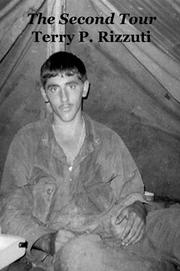
The Second Tour
By Terry P. Rizzuti
Subjects: marine corps, 26th marines, literary fiction, history, war, political science, Vietnam
Description: *The Second Tour* is a Vietnam War novel, but many readers seem to avoid picking it up because they fail to see that it is a novel before it is about war. It is in fact set mostly in a 13-month tour served by its protagonist in ‘Nam.’ Those who see only this setting miss the joy of reading a superb novel of the human spirit tried and sometimes broken in genuine fire. In Vietnam, America and Americans were forced to try and overcome insurmountable hardships. We sent our children into a situation where America’s problems of racism and social stratification had to be set aside and 19-year-olds were forced to embrace each other as brothers or simply die. And they still died. This novel graphically represents how they died, how some lived, and how some of those who lived must still fight that ugly war in their daily lives. That is the story here. Far from just being a story, this is a really terrific novel for those who are readers of literature. It is no easy read either in content or form. Its graphic depiction of the truth of war is a discomfiting experience for many, perhaps especially for women, yet it is truly worth the emotional expenditure of its reading. A generation of wives, mothers, sisters and daughters who have been forced to deal with the men who survived that war, or truly any family member who must come to understand combat veterans, will come to new and explanatory insights in reading *The Second Tour*. For readers of novels it offers other recompense. It is not stream-of-consciousness, not modernist, not associational, yet it is all of those and more. Much like coming to Pynchon’s Gravity’s Rainbow with no understanding of the possibilities of form, a reader might become baffled by the style of its telling. However, anyone who has the patience to overcome their expectations and continue reading will be rewarded many times over by the way that this author uses form as a powerful tool in the telling of his story. This is clearly a novel of the human condition first, and a Vietnam War novel second.
Comments
You must log in to leave comments.